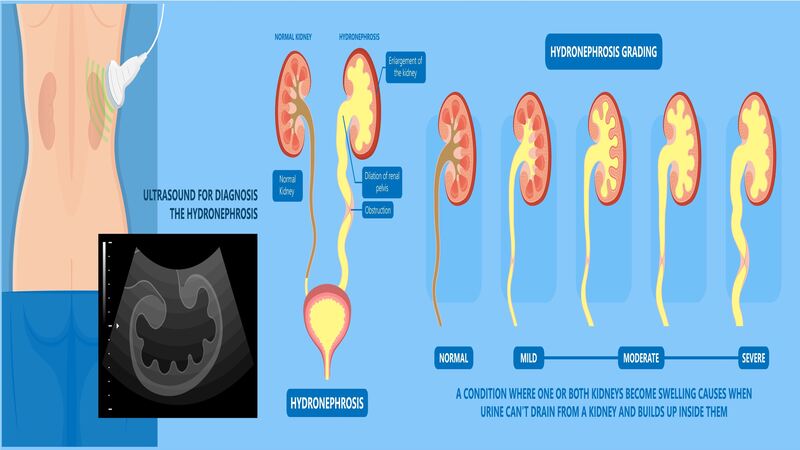 Are you pregnant and worrying about your unborn baby’s health? Has your doctor spoken to you about various issues with unborn babies? Problems related to kidneys are one of the common issues that affect the fetus. The kidneys of the fetus start to develop from the very beginning of the pregnancy, during the first month itself. The kidneys produce urine and maintain normal levels of electrolytes and fluids in the body.
Are you pregnant and worrying about your unborn baby’s health? Has your doctor spoken to you about various issues with unborn babies? Problems related to kidneys are one of the common issues that affect the fetus. The kidneys of the fetus start to develop from the very beginning of the pregnancy, during the first month itself. The kidneys produce urine and maintain normal levels of electrolytes and fluids in the body.
The major part of the amniotic fluid also consists of fetal urine produced by fetal kidneys. Issues with the development of kidneys during fetal growth can result in renal complications after the birth of the baby. Proper monitoring and medical intervention can reduce the risk of these complications. Continue reading to know more about fetal kidney problems, their causes, and various treatment options.
What Are The Different Types Of Fetal Kidney Problems?
The main types of fetal kidney problems are:
Hydronephrosis
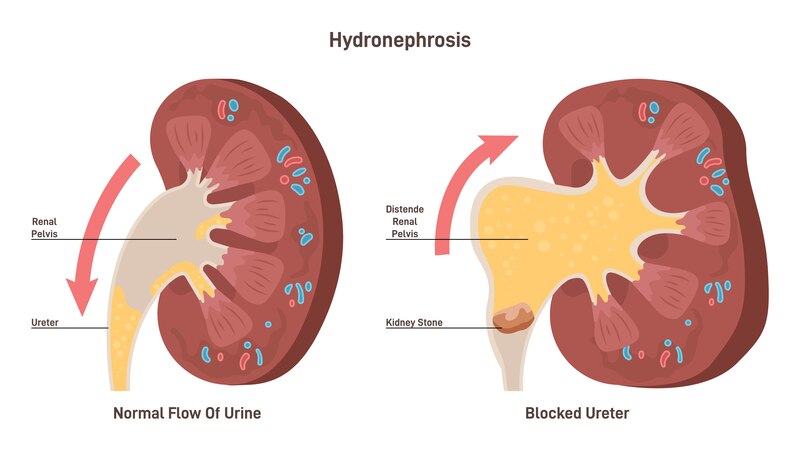 Hydronephrosis is an enlargement of the kidney, particularly the funnel-like part where urine is stored after its production. The dilation can be with or without obstruction or block (1). The dilatation without block can be due to the following reasons:
Hydronephrosis is an enlargement of the kidney, particularly the funnel-like part where urine is stored after its production. The dilation can be with or without obstruction or block (1). The dilatation without block can be due to the following reasons:
- The fetal kidney is not able to concentrate the urine. As a result, the volume of the urine that flows out and stored will be very high, making it dilated
- The stretchy and immature urethral tissues.
The dilation with obstruction can be either unilateral (one kidney) or bilateral (both kidneys). The most commonly found obstructions are:
Posterior urethral valves
It is a fairly common defect found in male children. It occurs due to growth of additional flaps of tissues that develop in the urethra and block the normal urine flow as a result the urine is accumulated from the bladder and up to the ureter. This can lead to organ damage such as the bladder and kidneys (2).
Ureteropelvic junction obstruction (UPJ)
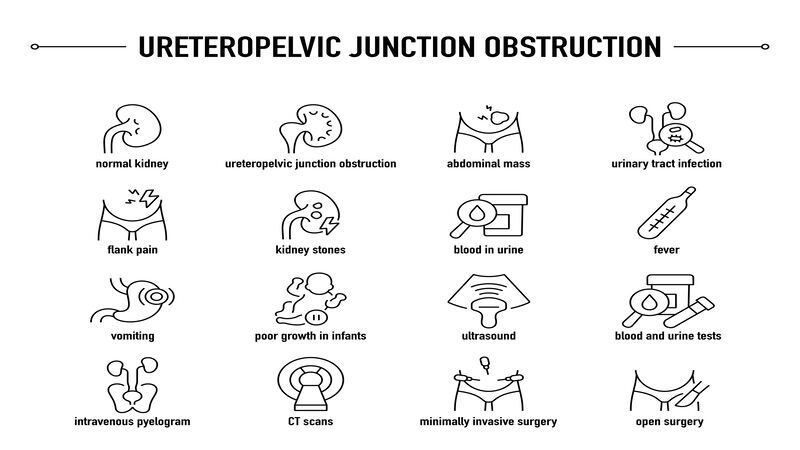 Ureteropelvic junction (UPJ) obstruction occurs at the junction where the ureter attaches to the kidney. As a result, the flow of urine down the ureter decreases, leading to an increase in fluid pressure inside the kidney. Increased pressure in the kidney can damage kidney function (3).
Ureteropelvic junction (UPJ) obstruction occurs at the junction where the ureter attaches to the kidney. As a result, the flow of urine down the ureter decreases, leading to an increase in fluid pressure inside the kidney. Increased pressure in the kidney can damage kidney function (3).
Ureterovesical junction obstruction (UVJ)
Ureterovesical obstruction (UVJ) is not as common as UPJ obstruction. Here the blockage occurs due to the defect in attaching the ureter into the bladder, obstructing the flow of the urine into the bladder (4).
Ureterocele
Ureterocele is a deformation in the part where a ureter, the tube from the kidney, enters the bladder. It is in the shape of a balloon and can cause problems like obstruction in the normal flow of urine from the kidney. This results in the accumulation of urine in ureter and kidney. If this blockage is not rectified then it can result in the kidney losing its capability to purify blood and urine and can also cause infections after birth which can be dangerous for the baby (5).
Neurogenic bladder
Neurogenic bladder refers to issues of the bladder caused due to nerve damage. Usually, the urinary system muscles and nerves work jointly to hold urine in the bladder and release it at the right time. Nerves transmit messages from the bladder to the brain and from the brain to the muscles of the bladder. These messages guide the bladder muscles either to contract or relax. But in case of a neurogenic bladder, there is a malfunction in the nerves which carry these messages due to various reasons (6).
This has a paralyzing impact on the bladder. If the obstruction is unilateral, affecting one kidney and the contralateral kidney is good and healthy. There is not a problem with kidney function as the single kidney increases its function and capacity and can perform 90% of the function that two normal kidneys would have done and the baby will be fine. However, if the obstruction is bilateral, it will be a more complicated and severe issue
Polycystic Kidney Disease
Polycystic kidney disease (PKD) is a hereditary issue that results in the growth of numerous fluid-filled cysts in the kidneys. As they grow, the cysts can damage the kidney tissues. Polycystic kidney disease happens because of genetic mutations (7).
Fetal Multicystic Dysplastic Kidney
It is a disorder that occurs due to deformity of the kidney during the development of the fetus. In this condition, grape-like cysts start developing in the unborn baby’s kidneys (8).
What Causes Kidney Problems In Unborn Babies?
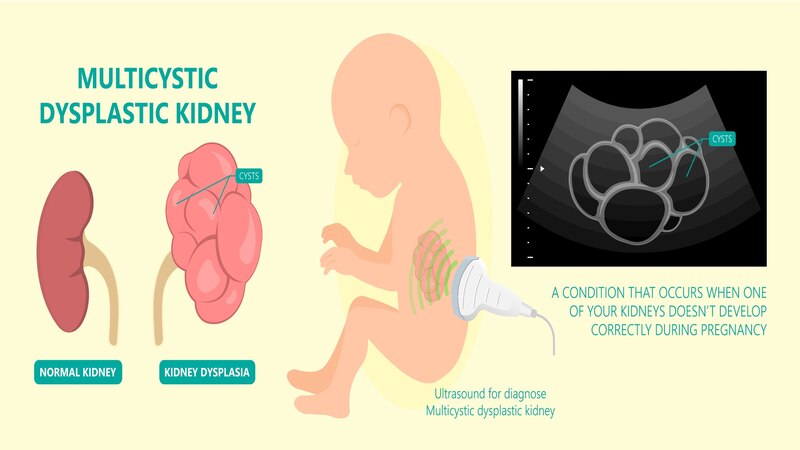 Doctors are not yet sure about the main cause of fetal kidney problems. This is a sporadic condition. However, as explained above:
Doctors are not yet sure about the main cause of fetal kidney problems. This is a sporadic condition. However, as explained above:
- Fetal Polycystic or Multicystic Kidney Disease is caused by to genetic mutation
- The Fetal Multicystic Dysplastic Kidney occurs due to deformity of the kidney during the development of fetus
- Hydronephrosis happens when a urinary blockage makes the urine to back up into the kidneys
How To Detect Fetal Kidney Problems During Pregnancy?
Your unborn baby’s kidneys start to develop from the first month of the pregnancy itself. Therefore the issues with the development or malformation of the kidneys can be detected in the routine prenatal ultrasounds (9). By around the 14th week of pregnancy, the fetus’s kidneys can be viewed while performing an ultrasound.
By the 20th week of pregnancy, the internal structure of fetal kidneys can also be viewed clearly. Based on these ultrasounds, the doctor will determine if your unborn baby has kidney problems and needs any treatment. Polycystic kidney disease is caused due to genetic mutation and can be detected through amniocentesis. Hydronephrosis and multicystic dysplastic kidney can be detected during the prenatal ultrasound
How To Treat Fetal Kidney Problems?
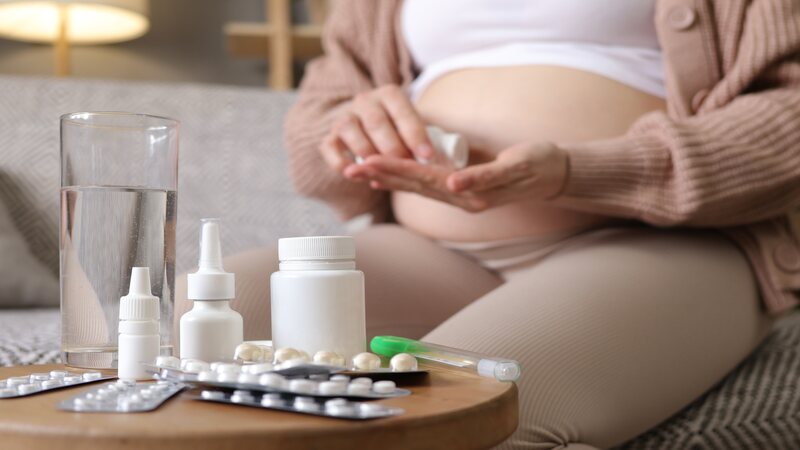 Unfortunately, fetal multicystic dysplastic kidney disease and polycystic kidney disease cannot be treated in unborn babies. The doctors may however recommend the following:
Unfortunately, fetal multicystic dysplastic kidney disease and polycystic kidney disease cannot be treated in unborn babies. The doctors may however recommend the following:
1. For Polycystic Kidney Disease:
Your doctor may recommend medicines to keep the blood pressure under control or if there is a urinary tract infection, then he may prescribe a course of antibiotics to treat the same. If this condition causes kidney failure, the doctors may suggest dialysis or a kidney transplant
2. For Hydronephrosis:
In this case, the doctor will try and clear the blockage that is causing the urine to return to the kidneys.
3. For Fetal Multicystic Dysplastic Kidney
Here the doctor will monitor the advancement of the condition through prenatal ultrasound.
If your doctor mentions that your unborn baby has some kidney issues during your pregnancy, do discuss with him the severity of the condition and the different treatment options available. Please do share in the comments section below if your baby suffered from fetal kidney problems and what measures did you take to cope with it.
FAQ’s
1. Can Kidney Problems Harm My Unborn Baby?
Yes, some kidney-associated problems can harm an unborn baby. During pregnancy, women’s kidney function doubles and increases the risk of damage, and may result in reduction in filtration rate. These types of kidney problems may increase the chances of developing complications such as low birth weight, premature birth, stunted or poor growth.
2. What Causes Baby Kidney Problems In Pregnancy?
Baby kidney problems during pregnancy can occur due to several factors such as hydronephrosis (kidney swelling due to excessive build-up of urine), urinary tract birth defect (a condition in which the urinary tract of baby becomes narrow during early development), and Potter syndrome (a condition that affects baby kidney’s function).
3. What Are The Symptoms Of Kidney Damage In Pregnancy?
Some of the common symptoms of kidney damage in pregnancy are swelling on the feet and ankle, itchy skin, headache, muscle cramps, nausea, fatigue, unintended loss of weight, weakness, and reduction in appetite.
4. What Are Kidney Defects In Fetus?
Some of the kidney defects in fetuses are kidney dysplasia (abnormal development of kidney structure, renal agenesis (absence of kidneys due to failure of kidney cell development), and multicystic dysplastic kidney (cysts or fluid sacs replacing normal kidney tissues).
References
- Hosny M, Chan K, Ibrahim M, Sharma V, Vasdev N. The Management of Symptomatic Hydronephrosis in Pregnancy. Cureus. 2024 Jan 1- https://www.ncbi.nlm.nih.gov/pmc/articles/PMC10784716/#
- NHS, Posterior urethral valves (PUV) – https://www.gosh.nhs.uk/conditions-and-treatments/conditions-we-treat/posterior-urethral-valves-puv/
- National Kidney Foundation, High Blood Pressure and Chronic Kidney Disease – https://www.kidney.org/high-blood-pressure-and-chronic-kidney-disease#:~.
- Ureterovesical Junction (UVJ) Obstruction – https://www.chop.edu/conditions-diseases/ureterovesical-junction-uvj-obstruction#
- Ureterocele – https://www.chop.edu/conditions-diseases/ureterocele
- Neurogenic Bladder – https://my.clevelandclinic.org/health/diseases/15133-neurogenic-bladder
- NIDDK, What Is Polycystic Kidney Disease? – https://www.niddk.nih.gov/health-information/kidney-disease/polycystic-kidney-disease/what-is-pkd#
- Multicystic dysplastic kidney (MCDK) – https://infokid.org.uk/conditions/multicystic-dysplastic-kidney-mcdk/#
- Lee WA, Nelson G, Grogan SP. Sonography 1st Trimester Assessment, Protocols, and Interpretation. [Updated 2023 Jul 31] – https://www.ncbi.nlm.nih.gov/books/NBK573070/#
